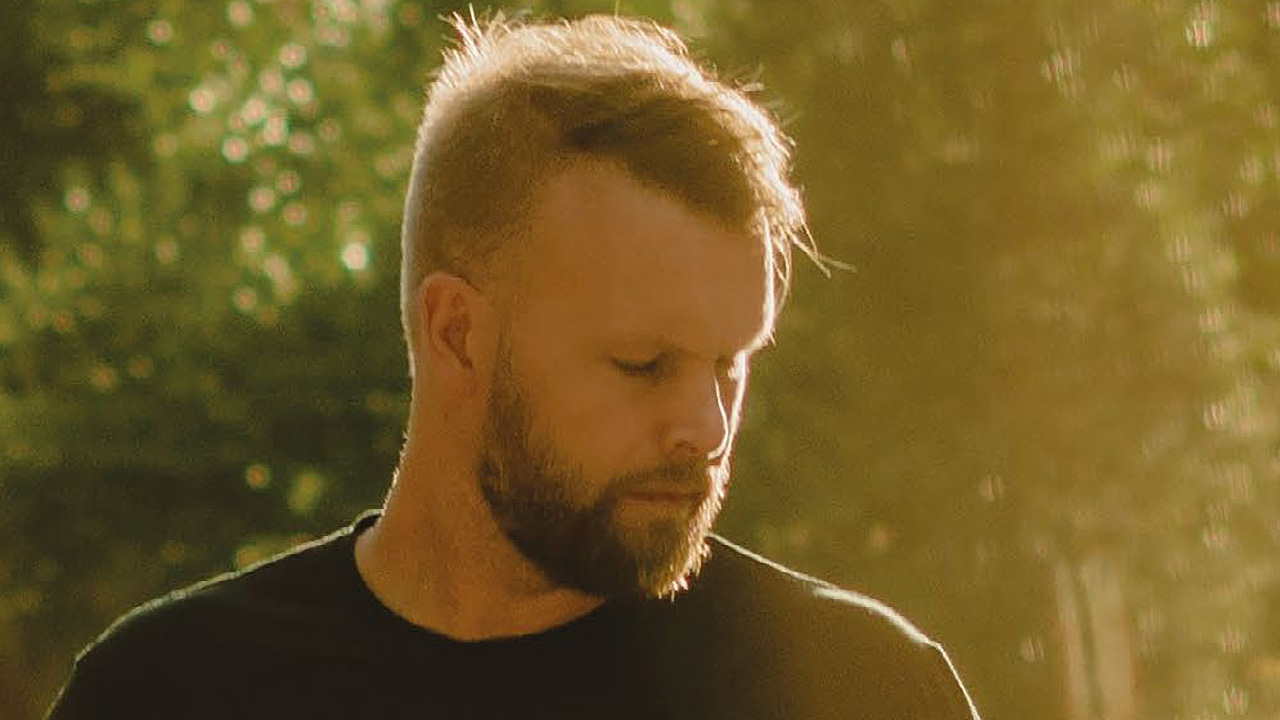"Me and Ozzy were a team. I never thought, 'What about me?'" We chat to Sharon Osbourne about growing up in the music industry, her "confrontational" father, feuding with Iron Maiden and Billy Corgan and a whole load more
Sharon Osbourne looks back on a 40-plus year career in the music industry
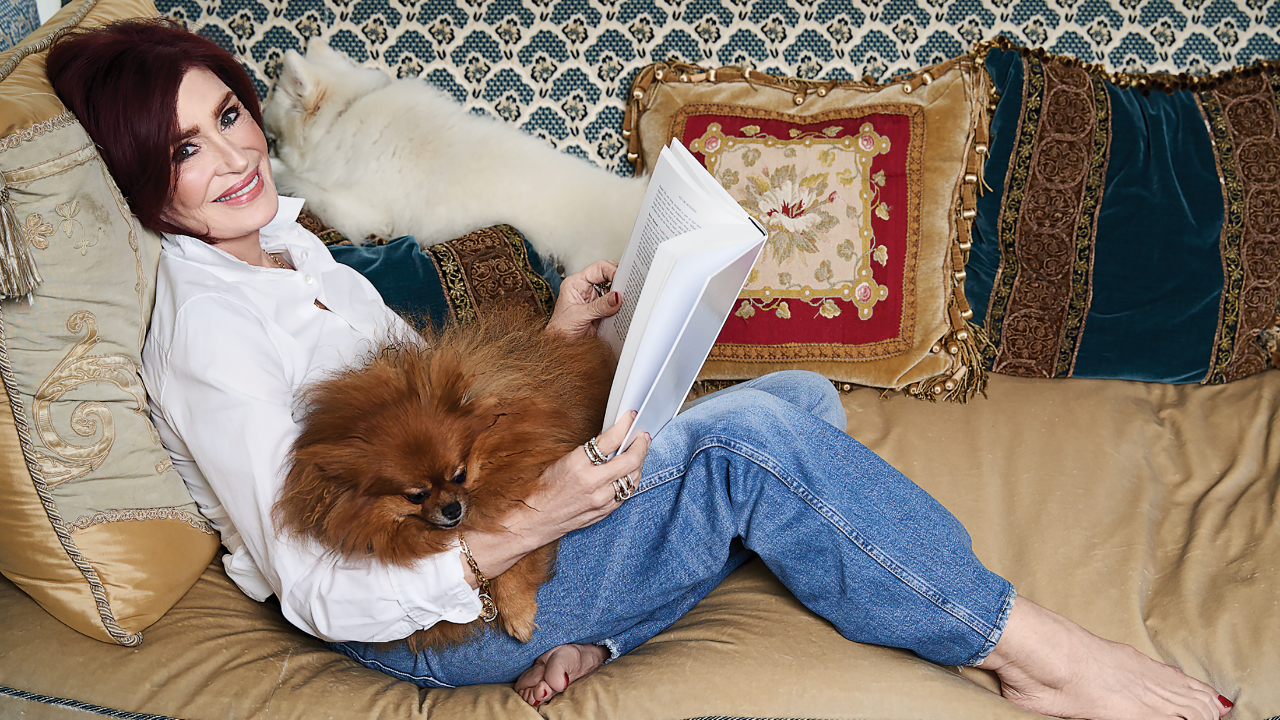
Few people have shaped metal like Sharon Osbourne. For more than 45 years, she’s successfully steered the career of her husband, Ozzy Osbourne, but that’s only one of her many achievements. By creating Ozzfest in 1996, she became responsible for some of the most stacked bills in the genre’s history, and gave a platform to rising bands such as Slipknot and Limp Bizkit, who would go on to runaway success. With The Osbournes, she helped pioneer modern reality television, turning her family into unlikely TV stars and ultimately taking metal to the White House.
It was inevitable Sharon would go into showbusiness, because she was born into it. She learned her trade from her father, a notorious hardman manager nicknamed ‘The Al Capone Of Pop’, but broke away from him when she started working with Ozzy following his dismissal from Black Sabbath. She would go on to marry him, but also save his life, putting an end to his fears about being a washed-up has-been by turning him into a solo star who became bigger than his former band.
Throughout Ozzfest, The Osbournes, Ozzy’s return to Sabbath, and a career in TV, Sharon’s remained fiercely loyal to her husband, even though their relationship has sometimes been fraught. Modern metal wouldn’t be the same without her. And, she says, she’s grateful to have lived through its evolution.
“The 70s and 80s were just incredible. And to be in the music industry at that time when there was so much true talent around... People were pioneers. It was like the movie industry in the 30s, 40s, and 50s. It will never be that way again, and the music industry is not the same,” she says. “I read something the other day, and it said, ‘I know that I’m old, but at least I lived in the world when it was a great place to live.’”

Your dad was a manager in the 60s. What were your first memories of music and being around musicians?
“It was just normal. I was born into the industry because my father was in the industry, my mother was in the industry, and going back over 100 years, my grandmother was. So I’m a sort of industry brat. I was sent to drama school at the age of 10. It’s all I knew. I didn’t have the normal family, where parents would plan birthday parties and how great it was going to be at Christmas. My dad was working at Christmas, and we’d be on the road with him.”
Was there an option of not following your dad into the family business, or was it always: ‘This is what’s going to happen?’
Sign up below to get the latest from Metal Hammer, plus exclusive special offers, direct to your inbox!
“This is what is going to happen. I didn’t know – because I wasn’t brought up the normal way a child in the 50s and 60s would’ve been brought up, because I was always out late and watching shows – there were no nannies in those days. Wherever my parents went I tagged along, and if I happened to fall asleep in the back of a car or at a gig, I fell asleep.”
What was the best lesson you learned from your dad?
“That you’ve got to fight. That you can’t let people take advantage of you. My father was extremely confrontational. At times he took it too far. But in those days there were no laws, no rules. The music industry was like the Wild West
as far as taking care of artists and their contracts.”
Was there anything that you remember seeing that really stuck with you in his business dealings?
“Terrible fights, threats, but none of it fazed me because I was so used to it. The times I heard my dad say, ‘I’m going to kill you, I’m going to do this to you’ – not to me, but to the people in the industry. But that’s the way it was.”
Who was the first artist you managed?
“The first person I managed was [Northern Irish guitarist] Gary Moore. He was touring with Thin Lizzy at the time. And Gary, who I owe a lot to because he believed in me, did a very naughty thing, which was very unprofessional – he left Thin Lizzy in the middle of a tour of America. And he kind of knocked on my door in the middle of the night and said, ‘I’ve left, will you manage me?’”
You mentioned him believing in you. What was it like being a woman back then and trying to be a manager?
"It was very hard, because women in the music industry were secretaries. Women didn’t do management. For me, it was, ‘You’re only here because of your father. You have to talk to her, you’ve got to be nice because otherwise the father will beat the shit out of me.’”
In one sense it can help being known. In the other sense, you’ve got to really prove yourself if people think you’re only there because of your father.
"You have to. You’ve got to know more and you’ve got to be stronger and you’ve got to be ballsier. It was all about going to a [football] game, then we’ll go to a strip club, then we’ll do coke. I couldn’t be in that group with the men – I didn’t want to. I never took a drug at that point in my life because it was taboo with my father, and I wasn’t interested anyway. When I saw people smoking, I thought they were fucking insane.”
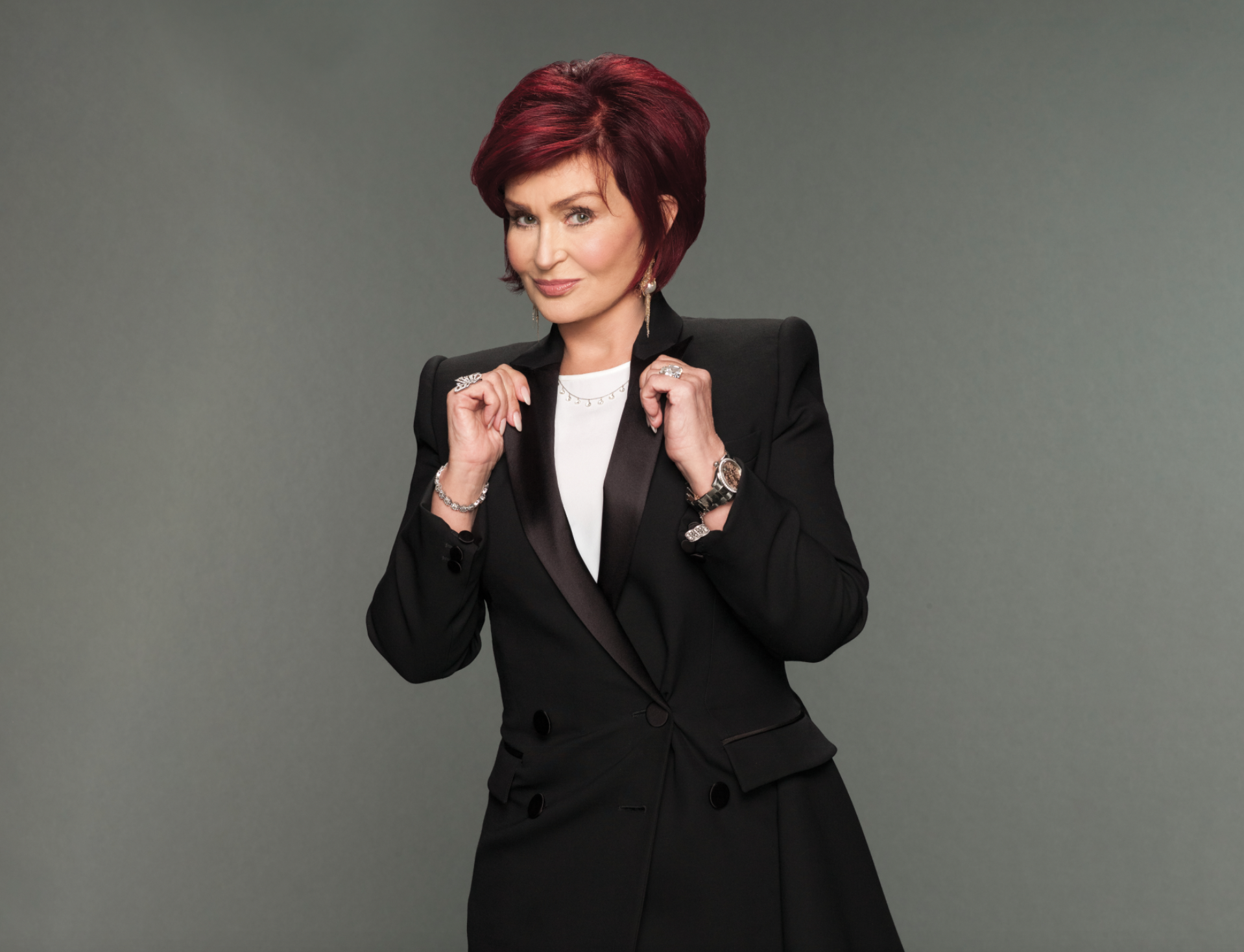
When did you first hear Black Sabbath, and what did you think of them?
“I was 18 when I first heard of Black Sabbath, and I saw them at the Marquee. I had never heard anything like it – it was so different. At first I was like, ‘What the fuck is this?’ And then I saw Ozzy come out and the way he was performing. My whole thing was, I loved to see the singer with three back-up singers doing dances in evening suits. Maybe a bit of a brass section. And it was like, ‘What the fuck?’ And then I got into it. It was one of those magic nights where the Marquee was sweating.”
What was it like when you took over managing Ozzy, after he was fired from Sabbath in 1979? He’s talked about being in a really bad place at that time with drugs and alcohol.
“I didn’t understand at that time in my life about alcoholism and drug addiction. I just thought people did too much of it and they could stop at any time they wanted, but they just didn’t want to. And Ozzy was in the worst time of his life. He thought, ‘It’s all over, I’ll go back to Birmingham and sit in the pub all day.’ And I said to him, ‘You can do it. You can definitely do it.’ And he didn’t think it would ever be a reality, and then look what happened. It was like something from a movie.”
You were the one that encouraged him and made it happen.
“I gave him the comfort of friendship, and trying to build that self esteem. And then when we met Randy, it was just like the perfect combination of somebody who was gentle and would give Ozzy the time. And again, give him the encouragement and nurture him. It was like this younger guy coming into Ozzy’s life that was such a calming influence.”
Randy was killed in a terrible plane accident while he was on tour with Ozzy, which must have been incredibly tough. How did you deal with it?
“It was devastating. The whole scenario was like a horror movie. And it was my best friend too, a woman who’d taken care of me in America [Rachel Youngblood]. She worked for me. She was older than I was and she was in the plane with Randy. So we had two people that we were so close to.”
Ozzy got back on track and became a solo star in his own right. Do you feel you got the credit for that?
“We were a team. I never thought, ‘What about me?’ I just used to get amazing feelings of seeing him onstage and seeing the crowd adoring him and knowing that we were right. It was amazing times to be at Rock In Rio [in 1985], and you’re there with Queen and Ozzy and all the great bands in the world. It was a week of partying and going to each other’s suites in the hotels, and up and down the elevators and staying in the bars all night. It was constant good times.”
Did you ever think about walking away from management when you had your kids Aimee, Kelly and Jack?
“No, because we had to survive. And I had to work harder for my kids because we had to have nannies, unfortunately. That was my own making. I managed my husband and I had three children. Six pregnancies – I lost three and I had three. We built our own little family. People that have just been amazing, that have been with us for years that worked for us, but with us, you know? We still have the same team of people with us, which we’re blessed for.”
Where did the idea for Ozzfest come from, and how difficult was it to get off the ground?
“It came from Lollapalooza, because I wanted Ozzy on Lollapalooza. And the response back was, ‘He’s not relevant.’ Because Lollapalooza, when it started, was all very grand and all very Seattle – they were musical snobs. So I said, ‘Fuck off, we’ll do our own and it will be a metal festival.’”
What was it like backstage on Ozzfest?
“It was brilliant. For 23 years, it was like summer camp. There was one band in particular who I just always adored, and I got the honour of working with them for a while, which was Motörhead [who played Ozzfest in 1998]. I just loved Lemmy to death. Loved him. And I loved Philthy, too.”
The Osbournes was a huge cultural phenomenon. What was it like to be in the thick of it?
“It was a great experience. It was something that we could all do as a family. Apart from my eldest daughter [Aimee], who didn’t want to be a part of it. It was a great experience, but it had to end. It was something that you couldn’t keep going on and on and on because it wasn’t the real world, you know?”
What do you mean by that?
“It’s the bullshit world where people you don’t even know will invite you to Russia for a party and fly you there, and they want to show you off that you came to their party in Russia. I mean, we got invited to the White House. It’s like, ‘Why the fuck do you want to talk to us? It’s nice for you to invite us, but what the fuck do you want to talk to us about?’ It’s not the real world. It was time to get back to reality.”
When you were diagnosed with cancer in 2002, you chose to carry on The Osbournes. Why did you feel that was important?
“Because I didn’t want my kids and my husband to know how sick I was. When you say ‘cancer’, everybody always thinks ‘death’. And you’ve got to remember it was 23 years ago. At that point, cancer wasn’t the same as it is now. So everybody always thought it was a death sentence and I didn’t want my kids to have fear constantly surrounding them. I didn’t want it. And I thought, ‘Fuck it.’”
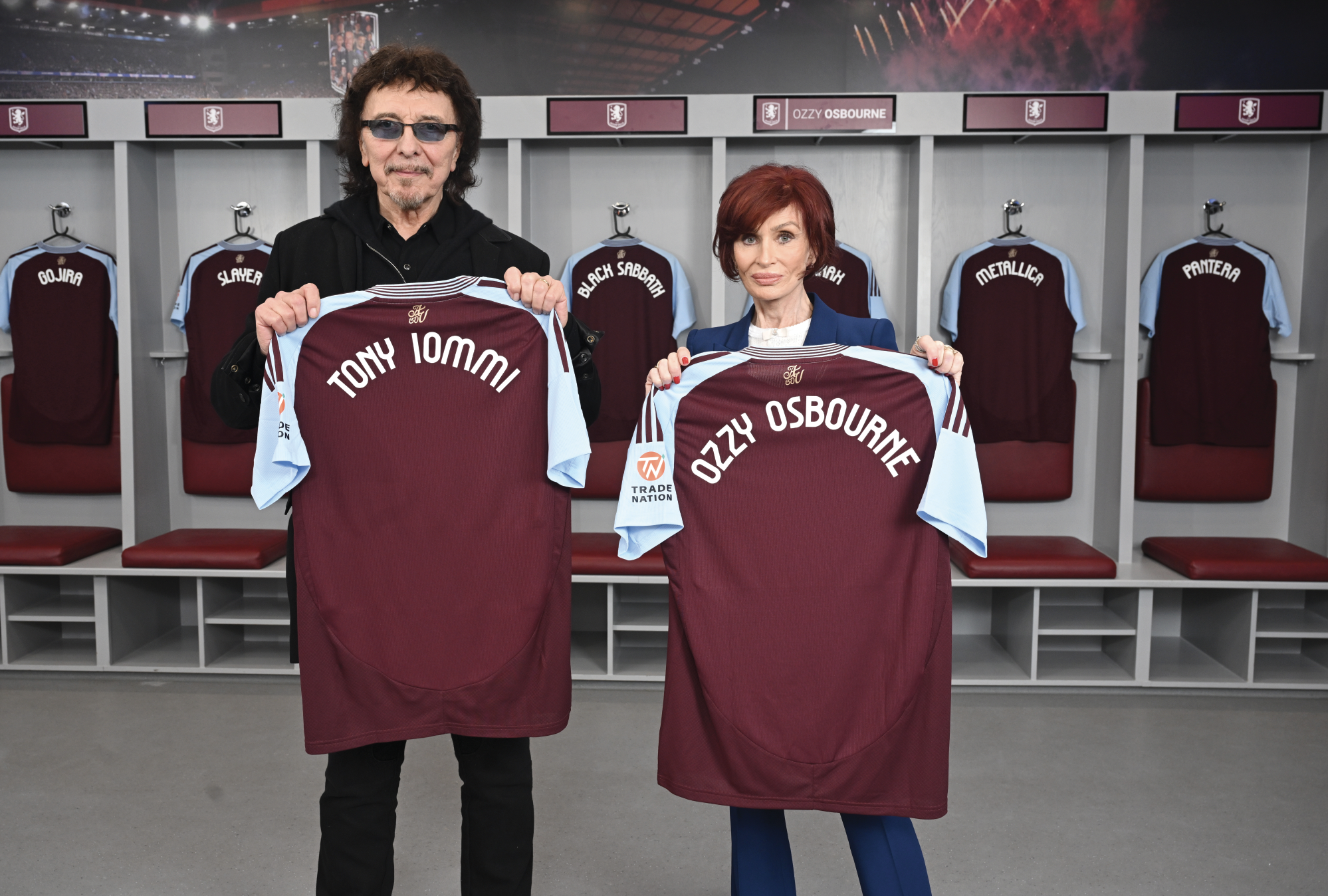
You’ve had bust-ups with several musicians over the years, including Billy Corgan, who is on the line-up for the final Sabbath show. Have you ever thought, ‘I wish I hadn’t said that’, or you went too far?
“Of course. Billy is a very, very bright, artistic person. I managed him and we fell out. I’m too confrontational and pushy for Billy. But I still respect him as an artist for what he’s achieved. And he’s an alright guy. I did his podcast [The Magnificent Others] last year. And he’s a brilliant, brilliant interviewer. I said to him, ‘Come and join us.’ And he took the invitation gracefully.”
Do you think that people are scared of you?
“Yeah, I think that a lot of people are. Because the thing is, I’ll tell on you. Things that you’ve done, things that I know about you, if you rattle my cage, I will tell. I don’t give a shit. It’s not like I’m trying now to earn a living or I’m trying to better my life, trying to be the most powerful woman in the industry. I’m happy with my lot in life, because I can look at myself in the mirror at night and go, ‘God I need another face lift.’ And go, ‘Alright, I’m alright.’ You look at the billionaires in the world today, how dangerous they all are because they’re all power hungry. And I’ve never wanted that. But if you fuck with me, I’ll tell on you.”
What do people get wrong about you?
“I had a huge, huge to-do with a manager over this celebration for Ozzy and Sabbath. And it was probably the worst way I’ve felt in years. And I don’t care what this person says about me, thinks about it, because he doesn’t know me. And he’s now going around making up bullshit lies because I threw his band off the bill. I don’t care what people say. Because do you know what? I don’t love them. I care about people who love me, what they say about me. You can’t care what an industry says, because you don’t love them, so how can it hurt you? It doesn’t.”
I know there were issues with Iron Maiden in the past...
“I love Iron Maiden, it’s just the singer because he was so horribly disrespectful. But if you’re going to take Ozzy’s money, and play before him every night of a festival [the 2005 Ozzfest], and you’re bad-mouthing him to
the crowd, you’ve got to pay. So I had him pelted with cans of baked beans that were open, and cut his sound.”
So the band you’re talking about isn’t Maiden?
“Oh god, no. Ozzy only has respect for the guys in Maiden. And he didn’t even know what Bruce was doing. I never told him, until the night that it happened when it was the last show, and he just looked at me and goes, ‘You’re terrible.’”
Do you think things have changed for women in the music industry since you started out?
“Oh yes, it’s brilliant for women in the music industry, it’s absolutely brilliant. You have to be brighter than the men, cleverer than the men, and they can never, ever take you down. You’ve got to be fearless. And there’s so many great women lawyers and women that run labels and women managers. I absolutely love to see it.”
Looking back, what’s your proudest achievement?
“Oh Jesus Christ. I honestly don’t know. Probably Ozzfest, because it passed the torch. So many great bands came out of Ozzfest that are still going today and still so relevant.”
Black Sabbath and Ozzy Osbourne's final show takes place on July 5 at Villa Park, Birmingham
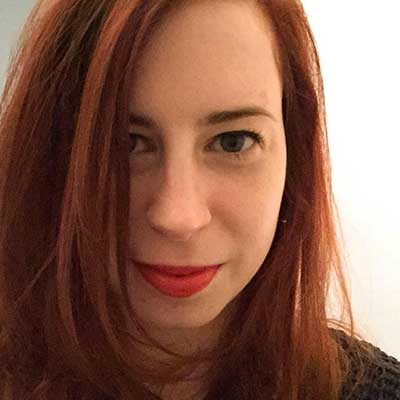
Eleanor was promoted to the role of Editor at Metal Hammer magazine after over seven years with the company, having previously served as Deputy Editor and Features Editor. Prior to joining Metal Hammer, El spent three years as Production Editor at Kerrang! and four years as Production Editor and Deputy Editor at Bizarre. She has also written for the likes of Classic Rock, Prog, Rock Sound and Visit London amongst others, and was a regular presenter on the Metal Hammer Podcast.
